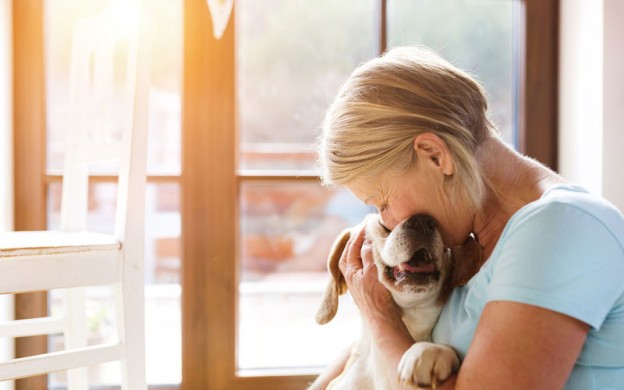
Our dogs are the most important members of the family, so how do we manage to cope when they pass away? Tim Falk looks at how you and your “pack” can cope with the loss of a much-loved pet.
Owning a dog is one of life’s great joys, something that fills every day with love, excitement and a wagging tail. But there’s an inescapable fact of dog ownership that everyone who loves canines will have to face at some stage in life: the death of their best friend. American author Erica Jong describes this situation better than anyone: “Dogs come into our lives to teach us about love and loyalty. They depart to teach us about loss.”
And for those of us who absolutely adore our dogs — or any other pets for that matter — we feel the loss of our animal companions in every aspect of our lives. “Pets play a really important part in our lives,” explains clinical psychologist Dr Glen Hosking. “People usually regard their pets as a member of the family and as such, the loss of a pet is usually felt intensely.”
Pain for pets
Not only can the loss of a pet be painful for people, but it can also be an intensely difficult time for your other pets. Dog trainer Chiara Perri from Point Cook Dog Training says it’s common for one dog to grieve following the death of a playmate.
“Some dogs are more bonded than others; they depend on each other not only for company but also security,” she says. “You can imagine if there were two dogs, one confident and one less confident, how the latter’s world would be rattled when the more stable one passes away. It would be no different to people really. When you live with someone for quite some time and they then die, you go through a process or learning to deal with it, learning to deal with the loneliness and eventually moving on.”
On the other hand, the passing of a dog can have a different effect on other pets if their relationship was unstable. “When one dog lives with another that bullies and intimidates over the years, there is quite some relief when it dies and I often hear owners state that their dogs actually seem happier,” Perri explains. When mourning, some dogs refuse to eat or drink for a few days, while others appear to be depressed. They may sleep more, refuse to go for a walk, stay on the passed dog’s bed and even pace around like they are looking for their lost friend.
“There are some dogs that whine and moan or even howl,” Perri says. “And I have had clients in the past that had dogs deliver a litter of stillborn puppies and, soon after the puppies were removed, the mother dogs collected stuff ed toys and put them in their beds as if to comfort themselves, mothering them like they were real. Whether this is instinct or not, you cannot deny the dog is going through an emotional rollercoaster.”
So how can you help your dog come to terms with such a loss? Well, perhaps the best thing to do is accept that your dog might be mourning and to give it time to adapt. “Continue with your routines as best you can; walk your dog, give it attention as per normal, maybe even a new toy can add a distraction to the issue,” Perri says.
A product called Adaptil is also highly recommended. It is a pheromone that has calming properties and can help dogs that are dealing with something traumatic. It comes as a diff user or a collar. If your dog is mourning not just its friend but company in general, maybe trying doggy day care can help it pass the day. Gradually removing the other dog’s old belongings, such as their blankets and collar, may also make it easier for your pet to move on without any lingering smells associated with their departed friend.
“Most dogs do recover from this but, if the owner felt it was starting to become a blur and the dog was depressed for more than a week, I would certainly recommend speaking to the vet about it as sometimes pets need medical assistance to help them get through it,” Perri says.
Here are just a few things that can make life with your dog a bit easier - see them now on our DOGSLife Directory



